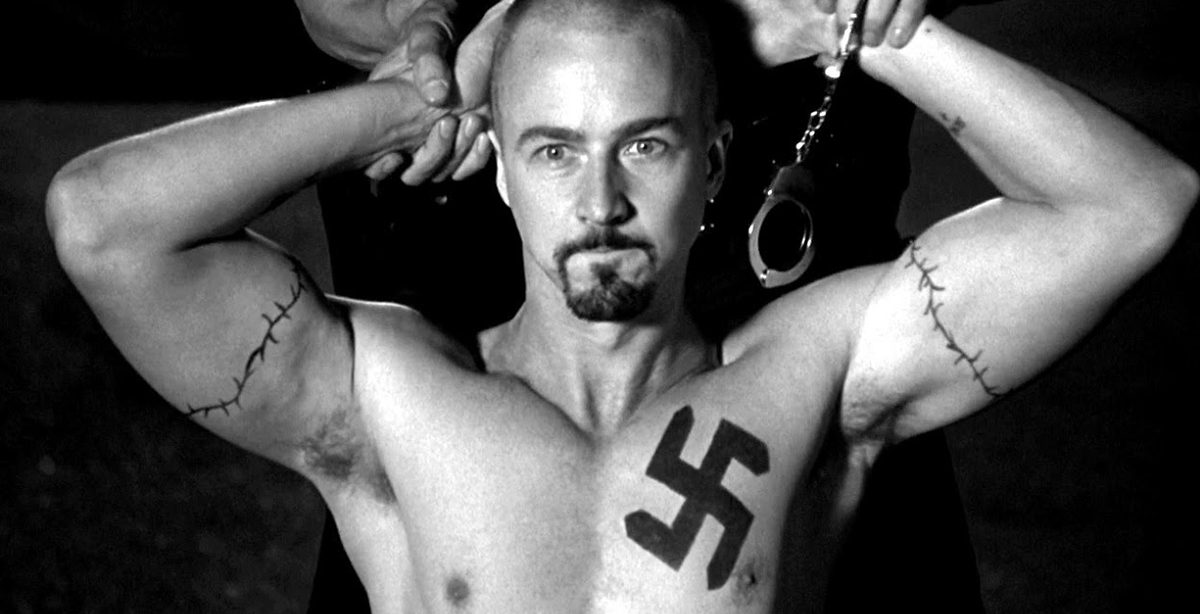
Hardwood and Hollywood’s G.O.A.T. Week is a series of posts on various categories to be published in two-week period. Yes, there were so many categories, we had to do two weeks, not one! Here’s the schedule: August 7th – Basketball Player, Football Player; August 8th – Drama Film, Ending to a Film; August 9th – Sports Announcer, Sports Cult Hero; August 10th – Baseball Player, Movie Athlete; August 11th – Ending to a TV Series, HBO TV Series; August 14th – Movie Actor, Movie Actress; August 15th – TV Series, Album; August 16th – Comedy Film, Film Franchise; August 17th – TV Actor, TV Actress; August 18th – Musician, One Hit Wonder
Tyler Birss – American History X (1998)
American History X changed the way I view cinema. Its brutality, character growth, and horrifying ending all stuck with me for years after watching it for the first time as a teenager. As a viewer, I gravitate towards darkness in film. American History X ventured into this bleak territory with unflinching realism while also revealing the evolution that Edward Norton’s Derek Vinyard character experienced. He transformed from a racist and ignorant leader of weak minded men into a strong and enlightened individual who sought redemption.
When it comes to dramatic performances, few actors can match what Norton put forth in this 1998 gem. He was utterly terrifying in particular scenes such as when he curb-stomped a home invader or when he stuffed food in his sister’s mouth during a heated dinner argument. While it may sound this way, I don’t rate dramatic movies on a scale of how disturbing and dark they are, rather, I simply appreciate movies that fully commit to their storyline without playing it safe.
Norton’s Vinyard, Edward Furlong’s Danny Vinyard, and the portrayal by Avery Brooks of Dr. Bob Sweeney all stand out as especially dynamic performances. By showing the pitiful depths of racism that some men resort to, American History X successfully deconstructed the mindset of individuals like Vinyard. They are fueled by hatred and are weak/confused internally. I have never seen a movie break someone down quite as much as they did with Norton’s character. After bringing him to his lowest point, the central character was able to experience an evolutionary rise.
Unfortunately, right as he rose, his brother was turned into a victim of the violence that Norton’s persona once surrounded himself by. Although devastatingly brutal and controversial, American History X delivered generationally strong performances and taught the viewers unforgettable lessons behind the power of ignorance, hatred, and ultimately, growth.
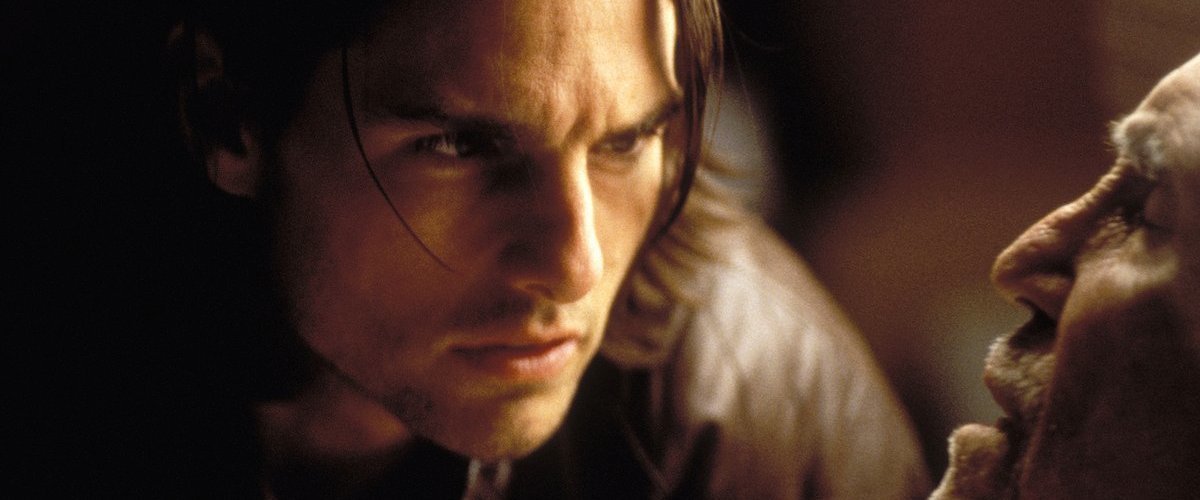
Mike Bitanga – Magnolia (1999)
The answer for this can change quite a bit for me, depending on the day I’m responding to it. One day it could be On the Waterfront, the next it could be Do the Right Thing, and after a few drinks it could be Point Break. Today, it’s Magnolia. Paul Thomas Anderson’s Magnolia captures every aspect of the word drama, and does so in a relative way. Is it a wonderful mess? Yes, just like life is. It’s a cinematic masterpiece that successfully juggles various stories of people searching for love, forgiveness, and meaning.
It stars many talented actors, including the late Philip Seymour Hoffman, Julianne Moore, John C. Reilly, William H. Macy, and Tom Cruise. The film is a complex piece of work that revolves around parallel stories of two dying men in Los Angeles. It intricately delves into the lives of people dealing with the curveballs life throws at them, as we get to see different angles of the human condition. People are panicky, brave, anxious, loving, hateful, pathetic, and hopeful. Magnolia manages to capture that in a unique, genuine way. It’s a film that allows us to reflect on our own lives, and the conflicts that arise within ourselves. Today, it’s the best drama film for me, but on any day, it’s one of the best drama films, period.

Sonny Giuliano – The Godfather (1972)
Since my parents and I moved to Florida in 2010, we do the following three things every single year on Christmas Eve: We eat multiple pounds of calamari and homemade bread, we listen to Christmas music, and we watch The Godfather. Now this probably sounds exactly like a stereotypical Italian holiday, but we don’t do this because we’re an Italian stereotype. We eat calamari and homemade bread because it’s delicious. We listen to Christmas music because Christmas Eve is the most Christmas-y day of the Christmas season. And we watch The Godfather because it’s the greatest drama film ever made.
(Before I move on, let me just get out ahead of this … Yes, my name is Sonny. My legal name is Santino. I was named after Santino Corleone. Santino Corleone is a character in The Godfather. I acknowledge that it would be very easy for anyone who disputed The Godfather as the GOAT Drama Film to say that my opinion is loaded with bias because of my ethnic background and my goddamn name. I would argue that it’s not my fault that my parents are Italian’s with great taste in movies).
Now of course, there is plenty of room for other opinions. I made sure to look closely at a few other movies that I deem to have a discussion-worthy case as the Greatest Drama Film of All-Time (for the record, and nobody really cares about anyone’s GOAT runner-up, but my GOAT runner-up is The Social Network, which is just as perfect of a movie as The Godfather, only there weren’t any characters named Sonny), but ultimately none of those choices proved to be the total package that The Godfather is.
The Godfather is a tour de force of cinematic perfection that has been lauded for nearly fifty years as a film with the highest quality writing, acting, story and musical score. There really aren’t any reasonable gripes any viewer could have; at least none that I have ever heard. Additionally, there is no possible way to deny that The Godfather has arguably been more influential on pop culture as a whole than any other movie, television show or musical achievement. Without The Godfather, we can confidently assume that there would be no Goodfellas, Casino, The Sopranos or any other mafia-related film or television program that has come since. And you definitely wouldn’t be reading Sonny Giuliano’s thoughts about sports and pop culture right here at Hardwood and Hollywood.
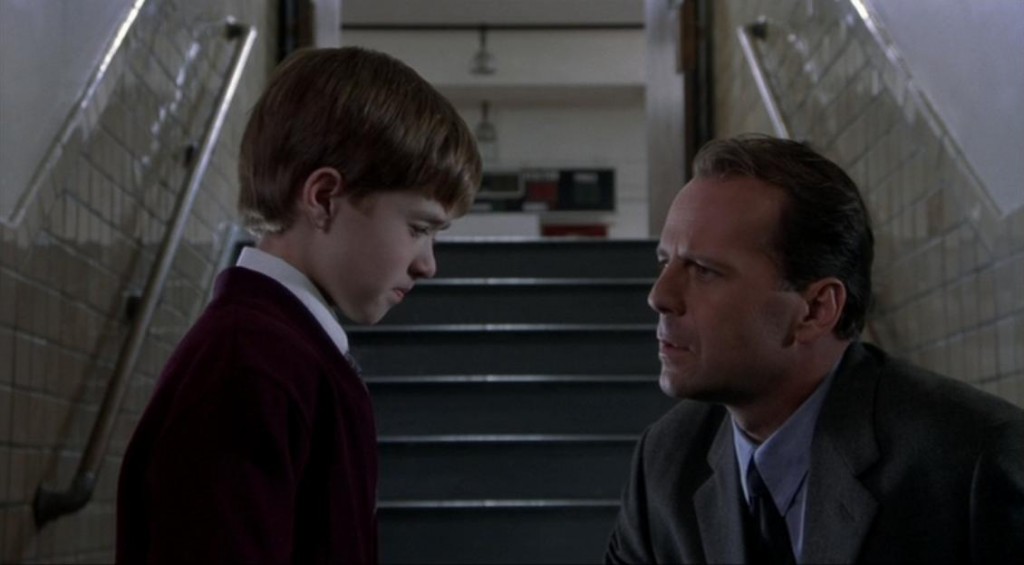
Lenny Burnham – The Sixth Sense (1999)
M. Night Shyamalan’s The Sixth Sense is now remembered mostly for its twist ending. While this touch is well-executed, it’s really just the icing on the cake. The Sixth Sense is much more than a smartly crafted thriller.
If you strip away the supernatural aspect, The Sixth Sense is a brutally honest portrayal of the emotional weight that comes with being a traumatized child. What’s brilliant about it is that while the ghosts themselves are scary, Cole Sear’s greatest pain comes from the exhaustion of pretending to be normal and the fear of what will happen if his secret is discovered. Haley Joel Osment played Cole’s anxiety and isolation perfectly, earning an Academy Award nomination.
It’s only after he meets an adult who listens to him and validates his pain that Cole starts to cope. He’s still haunted, but he’s able to deal with it once he starts communicating with his mother and isn’t met with judgment. It’s this emotional arc that makes the film timeless and relevant.
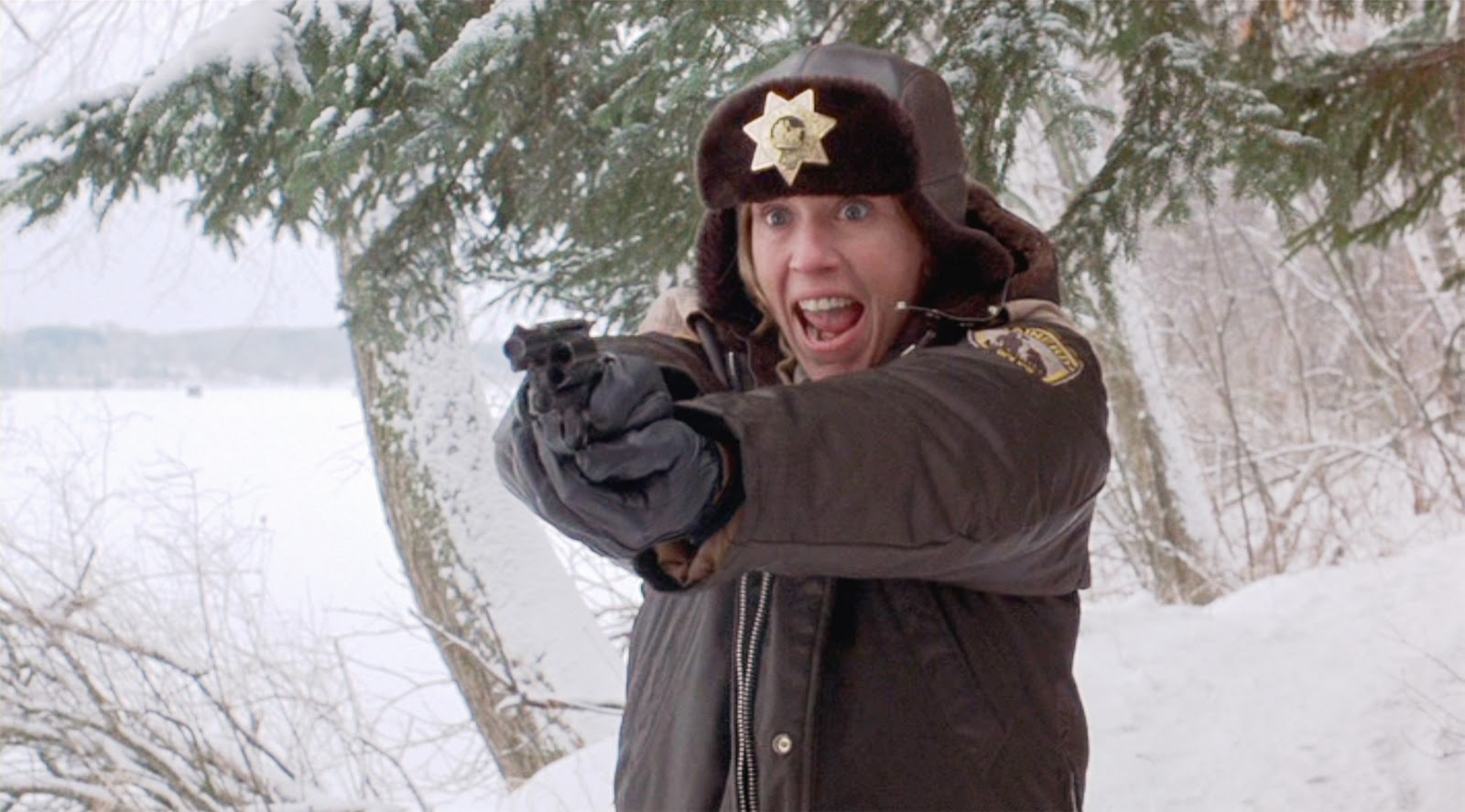
TJ Macias – Fargo (1996)
There are many films that I’ve watched in my lifetime that managed to undeniably spark my imagination to the point of no return from the very first viewing, but the Coen brothers’ award winning film Fargo hasn’t lost its specific grace, intelligence, and dark appeal as time went on (I’m ashamed to admit I thought American Beauty was a cinematic masterpiece when I first saw it. I know – shut the hell up).
The dark comedy/drama (overall, just plainly fucking original) revolved around a car salesman by the name of Jerry Lundegaard (played by a delightfully aloof William H. Macy), who, in desperate attempt to save himself from financial bankruptcy, hatches a plan to extort money from his rich father-in-law by making him think his daughter (Lundegaard’s wife) was kidnapped so he’d drop the ransom for her. He hires a loquacious, “funny looking” lowlife named Showalter (Steve Buscemi) and his ominously silent partner Grimsrud in order to really kidnap his wife in order to make the ruse a nasty hint of reality. Of course, things go awry and in comes the brilliant Frances McDormand, who plays police chief Marge Gunderson, a character who will arrest your attention for the entirety of the film itself. Her Midwestern accent so charming despite it being, well, a fucking Midwestern accent that only kids my age familiar with the cartoon Bobby’s World had a keen ear for.
The allure of the shrill white bleakness of the Minnesota backdrop seemed to boost the roseate iridescences of the performances in a way that was unfamiliar to audiences during that particular decade. It was a cinematic masterpiece that was as violently vivid as crimson red splashed on slightly soiled alabaster porcelain you see during a particularly daring scene involving a wood chipper.
The heart of the film falls within the crux of its own galumph nature, something the Coens brought to life in a painfully relentless, yet very real, way. Its subtlety has a pulse, its equanimity practically homicidal.
There’s a reason why they made a television show out of it (the second season is the strongest one, in my opinion) and why it’s one of the best fucking drama films around.

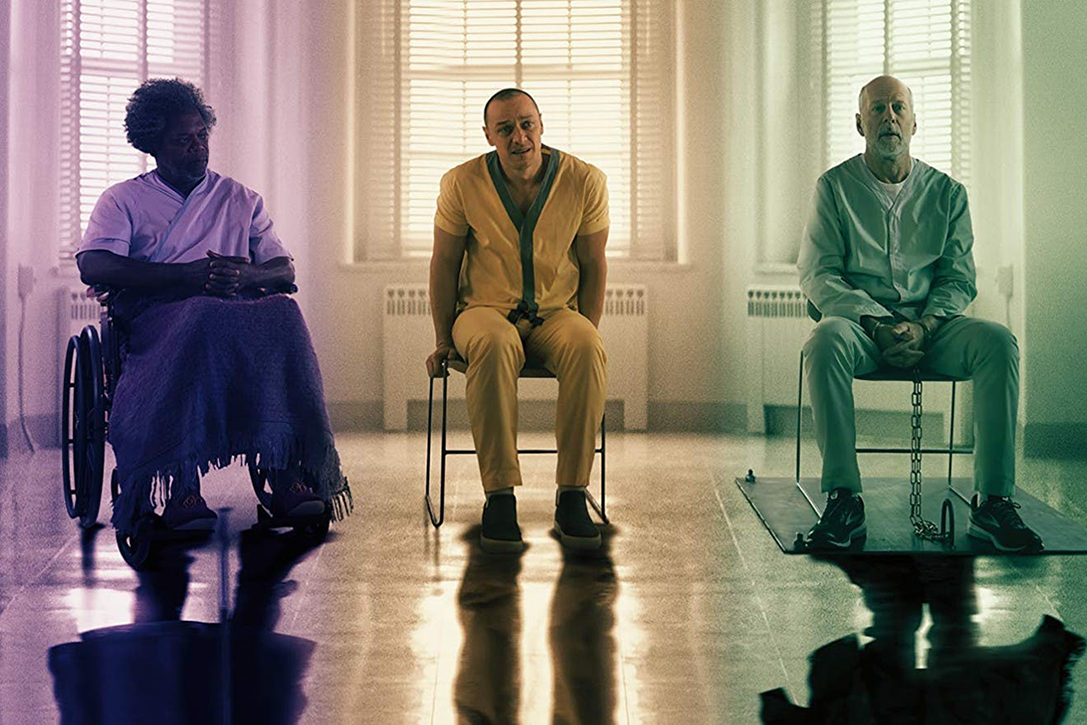
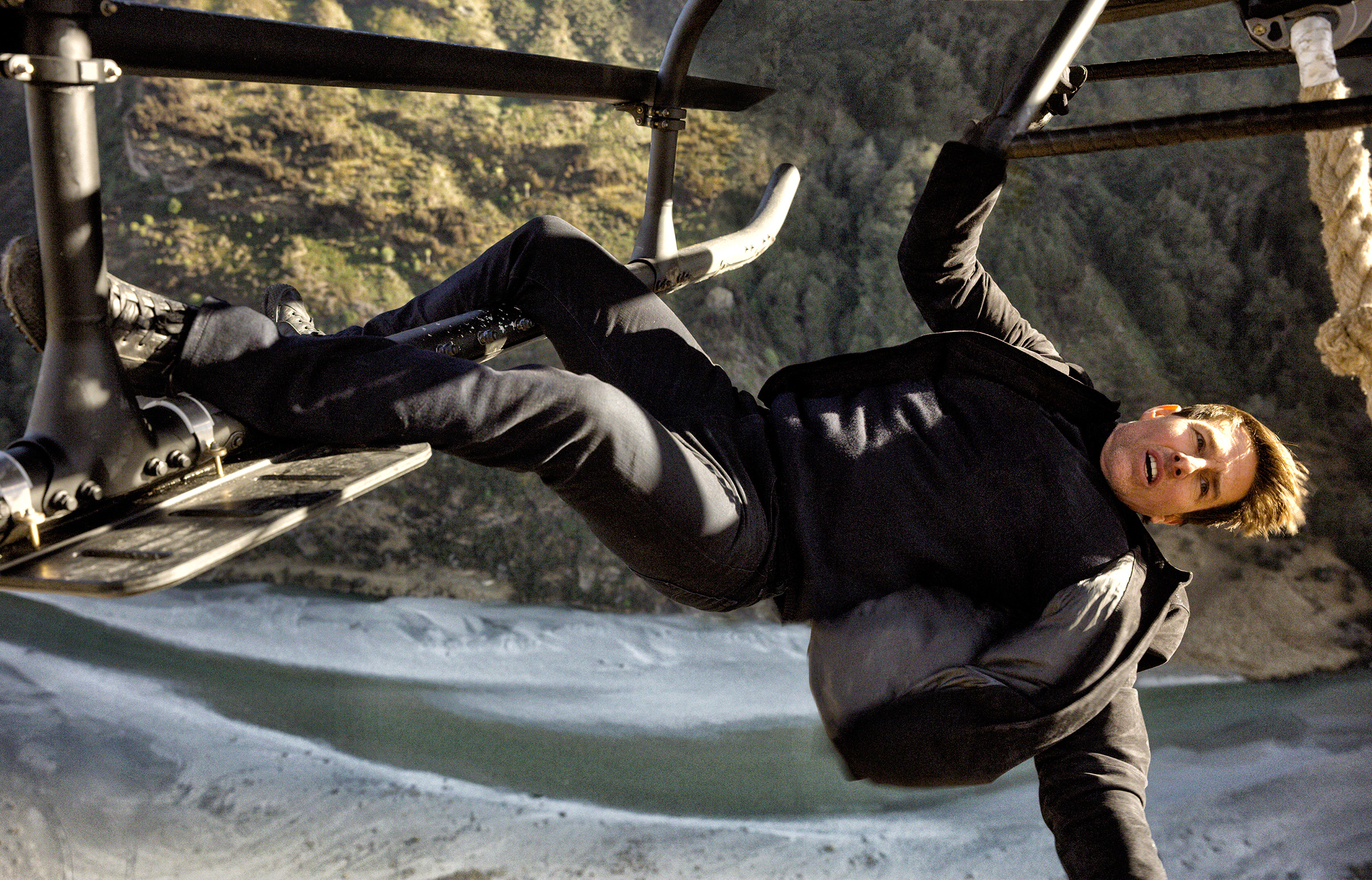
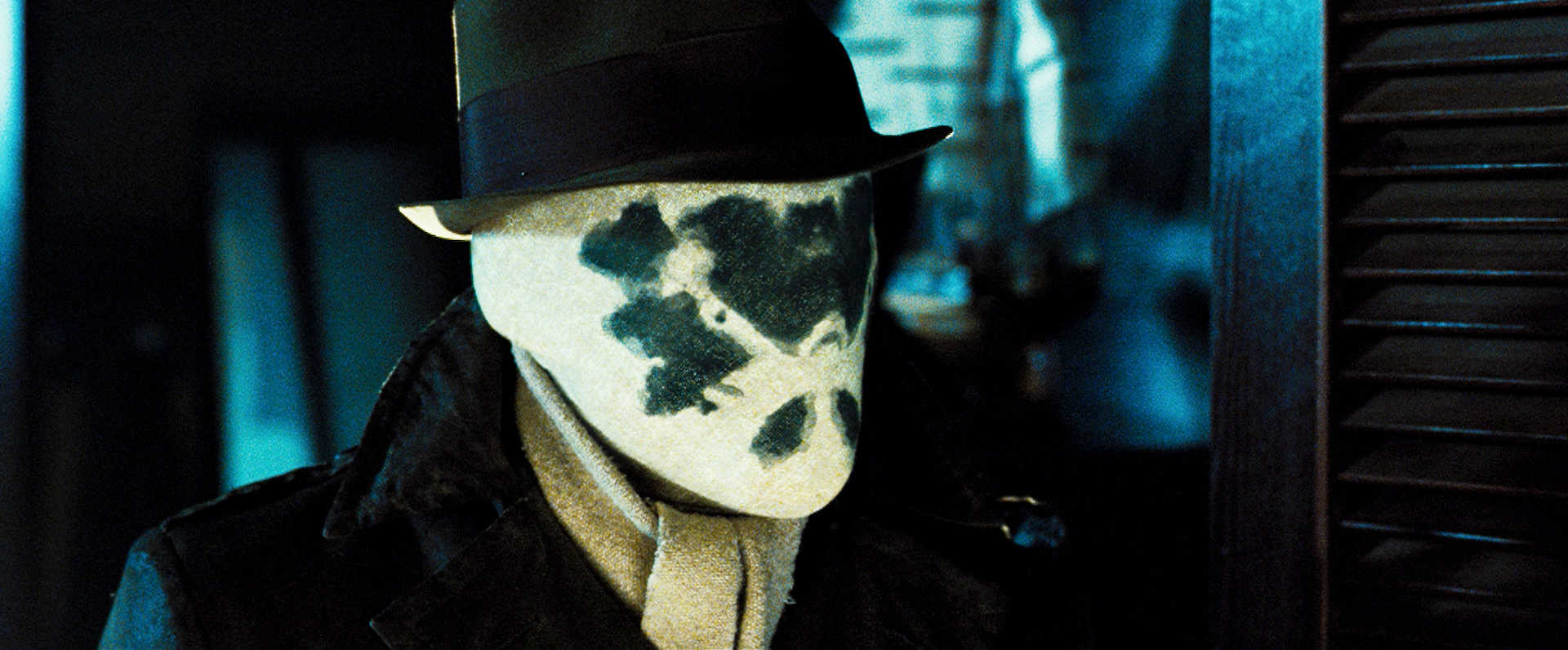












Pingback: GOAT Week: The Greatest Football Player - Hardwood and Hollywood
Pingback: GOAT Week: Ending to a TV Series - Hardwood and Hollywood
Pingback: GOAT Week: Movie Actor - Hardwood and Hollywood